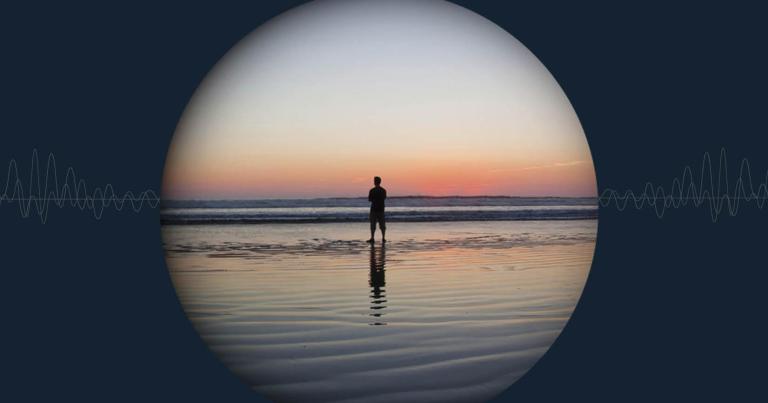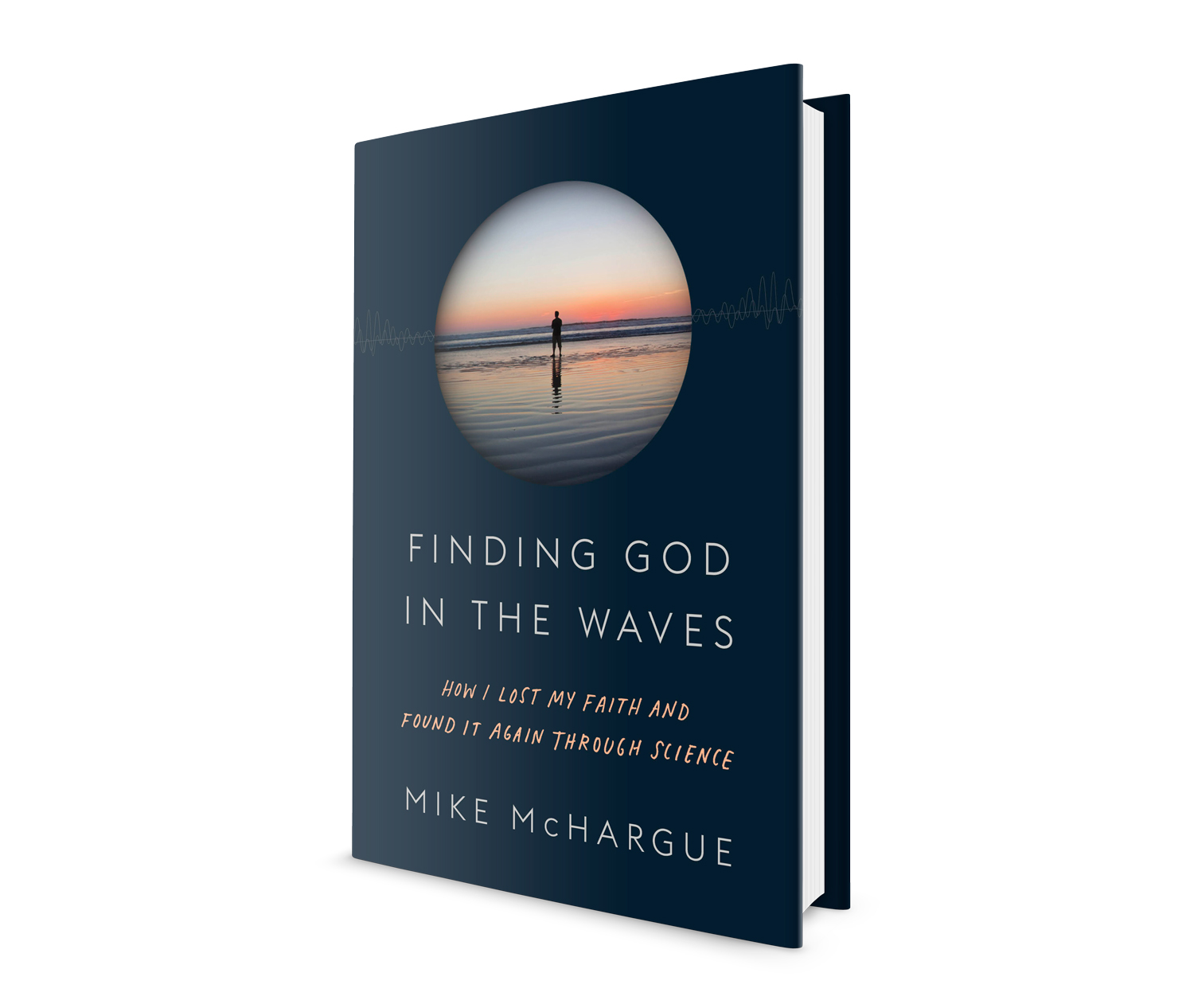
In a time of extreme rationalism and extreme religion, with anti-religious sentiments at an all-time high and religious violence and bigotry often dominating our headlines, Mike McHargue’s Finding God in the Waves offers a timely, profound and fascinating discussion on the relationship between religion and science, faith and doubt.
Finding God in the Waves is first and foremost for those who feel trapped between faith and reason; those who desire some kind of faith or sense a deeper meaning to life, but feel unable to reconcile this with science and rational thought. It offers a lifeline to those who are struggling with doubt or mourning a loss of faith; providing satisfying, empirical evidence that faith in God is not a foolish superstition or a dangerous diversion from reality. Using evidence from studies into neuroscience and faith, Mike McHargue (AKA ‘Science Mike’) shows the positive effects faith and prayer in particular can have on people’s lives, and gives practical advice on how someone desiring faith can develop brain tissue to make them more likely to experience God. The book also gives valuable insight into both conservative evangelical Christianity and atheism, showing the goodness, authenticity and compassion within both sides that can so easily be overlooked in intellectual debate.
Mike tells his story of growing up as a Southern Baptist, suffering the devastating loss of his faith and spending two years as an undercover atheist (“the world’s least interesting secret agent”) within his beloved Baptist community. He is then profoundly impacted by a mystical experience on a beach, which sparks his gradual return to a form of faith that could withstand his own skepticism and sit comfortably within his extensive understanding of science.
Mike writes in an accessible, conversational style, combining his own incredible story with fascinating excursions into cosmology and neuroscience. His ability to communicate complex scientific theories in a compelling and comprehensible way is quite extraordinary; he provides detailed, scientifically credible explanations, whilst keeping me (a non-scientist with a short attention span) glued to the page. This is no mean feat. Mike is brutally honest and open in telling his story, and the account of his loss of faith cuts right to the heart of the fears and doubts experienced by many Christians. He is also hilarious – there are regular ‘laugh out loud’ moments, interspersed between the existential crises and the mind-blowing scientific insights.
The first half of the book is a compelling and heart-wrenching account of Mike’s experiences of finding, losing and finding faith. Starting with his days as an overweight science nerd talking to Jesus as he hid from bullies in the woods, he describes how his faith became his source of comfort and hope, and the foundation on which his whole world was built. When he is rocked by the news of his parents’ marriage break up, Mike seeks comfort and guidance from the Bible, “binge-reading” it four times through, desperately looking for answers and clarity “with the fervour of a man trapped in a well”. Instead, his faith unravels. He embarks on a truth-seeking mission which ultimately leads him to the devastating conclusion that there is no evidence of the existence of God. Mike describes the turmoil, anxiety and depression that comes with loss of faith, and the gradual process of coming to terms with reality without God. After two years as a closeted atheist, Mike has an experience on a beach in California which leaves him feeling like he had met with God. This marks the start of his gradual return to faith, but it is by no means a straight forward ‘happy ending’, and the faith he finds is very different from the one he had lost two years previously.
In the second half of the book, Mike takes us through the detailed reasoning behind his faith reconstruction. He never seeks to prove the existence of God, but rather seeks to show that the pursuit of faith is rational and healthy. He talks about finding God in cosmology, and about the effect that different forms of faith have on the brain. He provides practical steps that a skeptical person can take to develop faith and experience God without feeling like they have to abandon all rational thought. He discusses the meaning and significance of Jesus, the role of the church, and Biblical interpretation (a way of reading the Bible that doesn’t result in atheism). Underpinning Science Mike’s reasoning are a set of axioms about aspects of the Christian faith – self-evident statements that provide a foundation for faith to grow, and act as a barrier against skepticism and doubt. These have the potential to be profoundly helpful and significant for anyone wrestling with doubt and skepticism who is seeking to strengthen their faith.
This is one of those books that I shall be coming back to again and again. For me it’s been a game changer – simultaneously deeply unsettling and profoundly comforting. It has given me a way to move forward in my faith, to fully embrace science and rationalism whilst remaining open to the greater mysteries of reality, and the deeper meaning behind it all.
‘Finding God in the Waves’ by Mike McHargue was released on 13th Sept 2016.
Images used with permission from publisher












